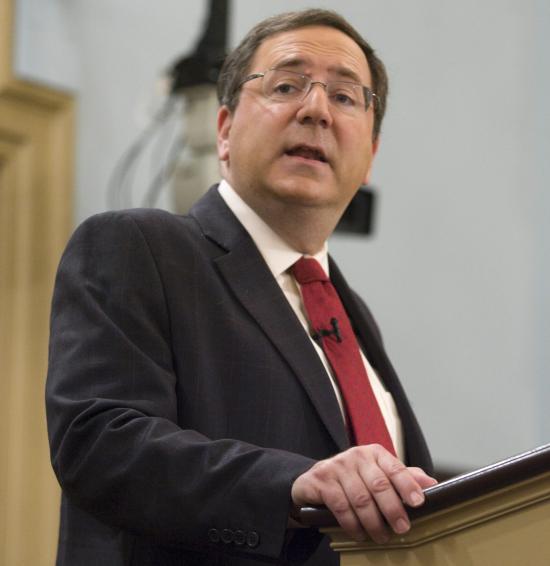The Russia Hack and the Challenge to American Democracy
When the F.B.I. called the Democratic National Committee in early fall 2015 and said they suspected a foreign state was inside the D.N.C.’s computers, few paid attention or thought it was anything out of the ordinary. Two years later, we regard it as a defining moment in the use of cyber as a weapon of influence, just as Stuxnet was a defining moment in the use of cyber as a source of destruction.
David E. Sanger, national security correspondent for the New York Times and a member of the team that won the 2017 Pulitzer Prize for International Reporting for his work on how the Russia hack unfolded, takes on both the remarkable story of the operation and its implications. Suddenly we are asking what will be vulnerable next time, and whether we are about to enter a sea change in how nations compete in the cyber realm. He looks both backward and forward, asking why the United States was so unprepared—and whether political speech on social media may soon be regulated. And, as the correspondent who told the world the story of “Olympic Games,” the American code name for the Stuxnet attacks, he asks whether governments have begun to understand how cyber power will affect the underpinnings of democracy.
David E. Sanger is a national security correspondent for The New York Times and one of the newspaper’s senior writers. Sanger is the bestselling author of Confront and Conceal: Obama’s Secret Wars and Surprising Use of American Power, and The Inheritance. He has been a member of two teams that won the Pulitzer Prize and has received numerous awards for coverage of the presidency and national security policy. He also teaches national security policy at Harvard’s Kennedy School of Government.
Confront and Conceal: Obama’s Secret Wars and Surprising Use of American Power (Random House 2012) is an account of how President Barack Obama has dealth with foreign policy and national security challenges during his first term in office. It is a follow-up to his bestseller The Inheritance: The World Obama Confronts and the Challenges to American Power (Harmony, 2009), which explored the national security challenges that faced the new American president when he first took office. From 1999 until 2006, Mr. Sanger was White House correspondent for The New York Times covering one of the most tumultuous eras in American national security policy, from 9/11 through the wars in Afghanistan and Iraq. Twice in his 27-year career at the Times, Mr. Sanger has been a member of teams that won the Pulitzer Prize, first for the investigation into the causes of the Challenger disaster in 1986, and later for investigations into the struggles within the Clinton administration over controlling technology exports to China. He has also won the Weintal Prize for diplomatic reporting for his coverage of the Iraq and Korea crises, the Aldo Beckman prize for coverage of the Presidency, and, in two separate years, the Merriman Smith Memorial Award, for coverage of national security issues. Mr. Sanger has reported from New York, Washington and Tokyo, where he was bureau chief in the early 1990’s. He returned to Washington in 1994 as chief economic correspondent. In all of those roles, he has covered a wide variety of issues surrounding foreign policy, globalization, nuclear proliferation and Asian affairs, and was appointed chief Washington correspondent in 2006. Mr. Sanger graduated from Harvard College in 1982. He appears frequently on both public television and news shows, and is a member of the Council on Foreign Relations and the Aspen Strategy Group.










